To set the stage for discussion on OPHELIA, one must borrow from the Bard himself and ask “what light through yonder window breaks”, as director Claire McCarthy’s beautiful visionary telling and crafting is indeed a light in not only the cinematic spectrum but in the world of Shakespeare.
Magical, mythic, magnificent. OPHELIA is exquisite!!
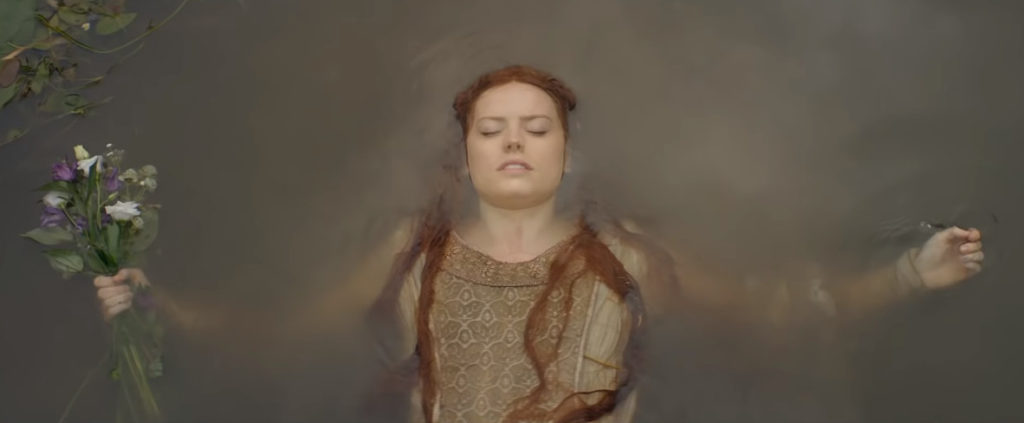
The idea of telling the story from Ophelia’s feminist POV after 400 years is not only refreshing but extremely well thought-out and developed. In “Hamlet”, one of Shakespeare’s most famous works, Ophelia spends most of the story caught in the crosshairs of her father, her brother Laertes, Queen Gertrude for whom Ophelia serves as a lady-in-waiting, the King, and of course, Hamlet, only to go mad following the death of her father. But thanks to Claire McCarthy, screenwriter Semi Chellas, and novelist Lisa Klein on whose work Chellas adapts this screenplay, Ophelia is anything but mad. She is a woman determined to shape her own destiny and tell her own story; something that is quickly established with an effective opening voiceover. Chellas does a superb job breaking out a myriad of characters, adding some new ones (like Mechtild, Gertrude’s older sister), deviating from the Bard’s throughline of events, stealing a bit from “Romeo and Juliet” and elsewhere, taking literary license while still holding fast to the core story and thematics, and all on top of shifting our narrative POV. Key to opening up the story for this interpretation is taking us back six years to Ophelia as a dirty young child running amok within the castle before being taken under the wing of Gertrude. Newcomers to the story of “Hamlet”, as well as seasoned Shakespearean Anglophiles, should both be not only engaged but satisfied.
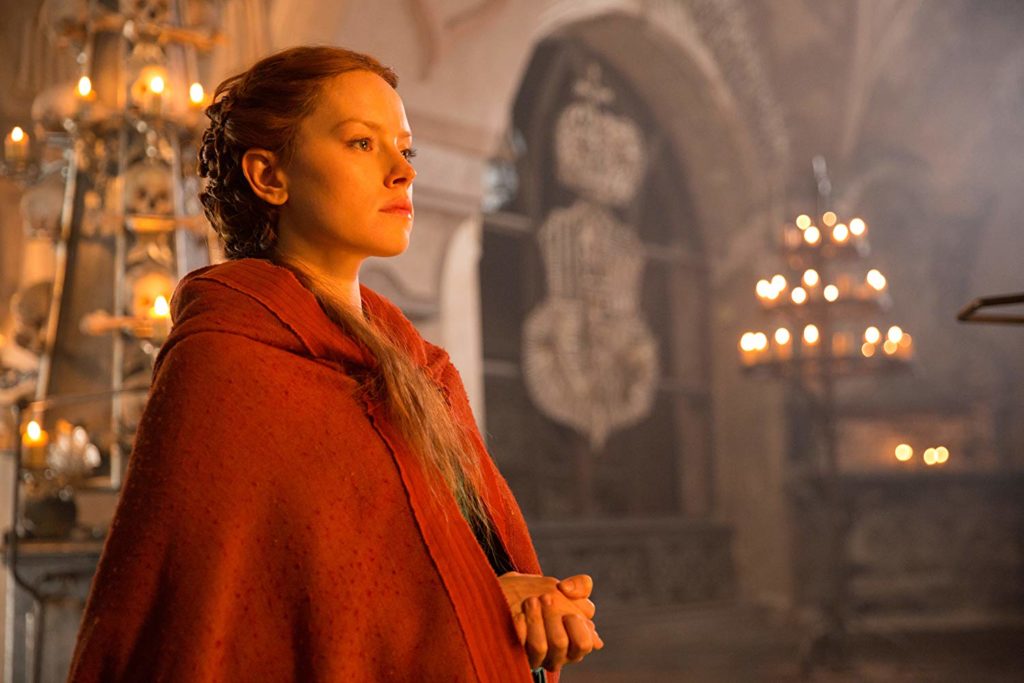
Perhaps one of the most glorious elements of Chellas’ work is the dialogue itself. Elegant, yet modernized, it not only opens up the film but Shakespeare’s works on the whole, in a comprehensible fashion for today’s audience. The dialogue is refined, as is the delivery, but breaks away from Shakespeare’s patented pentameter (most often iambic) with a more freeing ebb and flow that metaphorically speaks to the visual celebration of nature. And yes! The script retains many oft-quoted signature Shakespearean phrases.
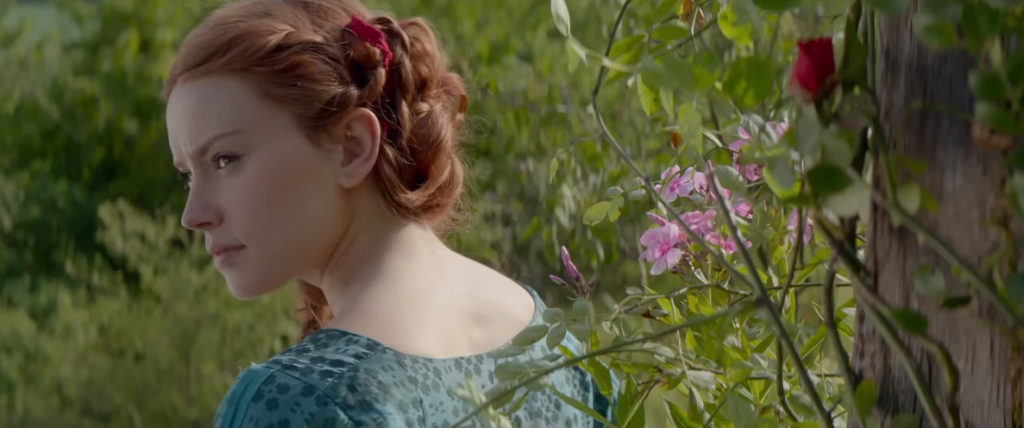
But as if this isn’t enough, one look at the opening scene of OPHELIA steeps us in visual and emotional splendor which only increases and intensifies, morphing like a butterfly into breathtaking splendor and even magic. We first meet Ophelia, languid and in complete serenity and silence in a lilypad covered pond. This visual is a defining tone for Ophelia. More magic with different notes comes later through an exquisite masque ball that embodies a mythic ethereal beauty with everything from Massimo Cantini Parrini’s costume design to hair and makeup to Dave Warren’s production design and Denson Baker’s cinematography. Each element is as award-worthy as the next. Noteworthy is that the individual production elements are not only visual experiences in and of themselves but when viewed in their tapestried form, emotional ones. And the use of color, plus the fabrications of the costumes, are in a word – Wow!
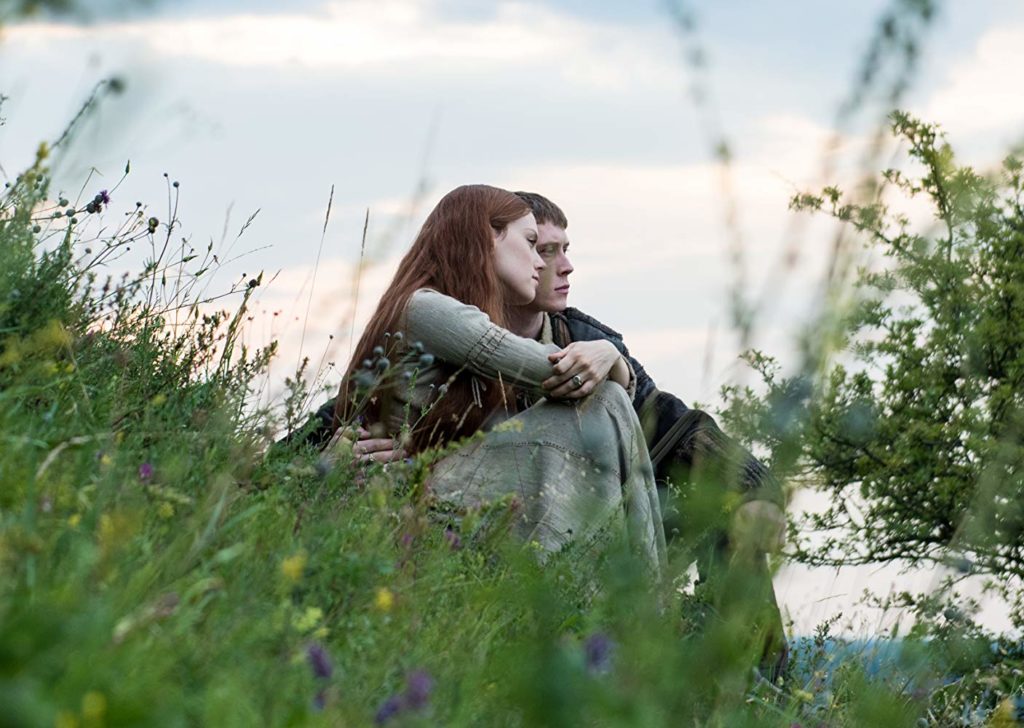
Dave Warren’s production design within the castle is not only beauteous but telling as to each of its residents and this world as a whole. Gertrude’s chambers are creamy and light with a candlelit warmth. The detail to the design of her bed with hanging crystals, satins, and chiffon draperies loosely draped from above and at the entryway to the chamber itself speak to the femininity of Gertrude, not to mention her desire for finery; and erotic novels. Contrasting Gertrude’s chamber is that of her sister Mechtild whose forest cave radiates a coolness both in temperature and design thanks not only to Warren’s design but Baker’s lighting which creates striking contrasts within from a fringed inky darkness to bright GE white light that streams in over the bed as if light from heaven.
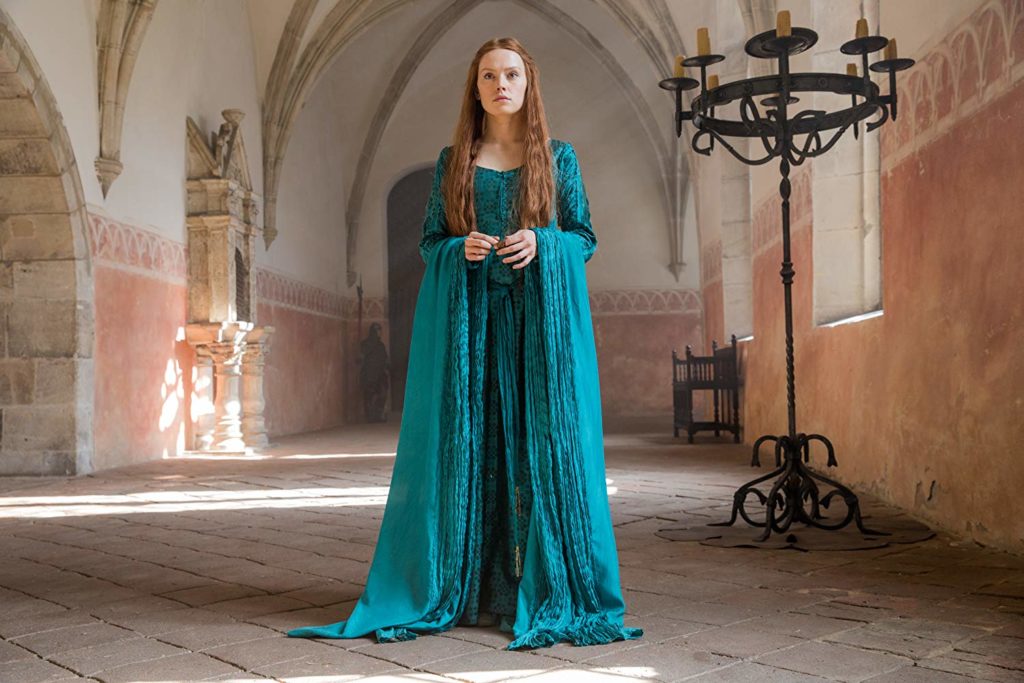
Castle hallways have large windows and inside herb gardens that not only bring nature indoors but are a tie to Ophelia and her affinity with the freedom of the outdoors. Nature is everywhere. And then there’s the “chapel” filled with skulls and bone chandeliers. While it should be creepy, it’s actually quite lovely and delicate.
Cinematography is rich and lush. The lighting design, in particular, celebrating natural light and candlelight, sets tone and mood and moment. The way Baker lenses the exteriors – the woods, the water – is not only beautiful but serene and celebratory, tying Ophelia to the nature that she loves. Flowers abound inside and out, adding pops of color everywhere while Baker’s lens exquisitely captures the rich green of the grass, the blue of the sky, the yellow of the sun, the inky blue-black of night and a silver moon. Framing is unfettered. Castle interiors, and most notably, Gertrude’s chambers, are lit so as to cast soft golden tones that reflect off of the brocade and satin fabrics. The throne room is long and wide and lensed with widescreen appeal to make it appear even more imposing.
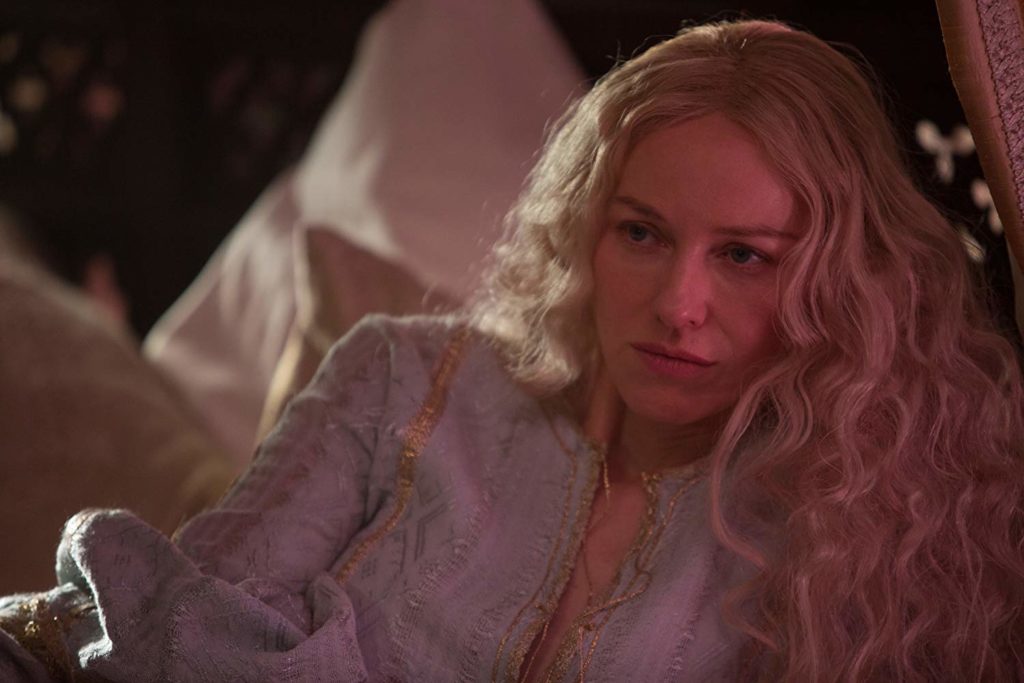
Sword fights are not only well choreographed but well executed and shot with just the right amount of ECUs to capture the beats of fear and triumph.
Composer Steven Price’s score and orchestrations blend the tones of “medieval” music and instrumentation with a modern twist that mirrors the storytelling. Score never overpowers the dialogue or sound design. Sound mix is very well done.
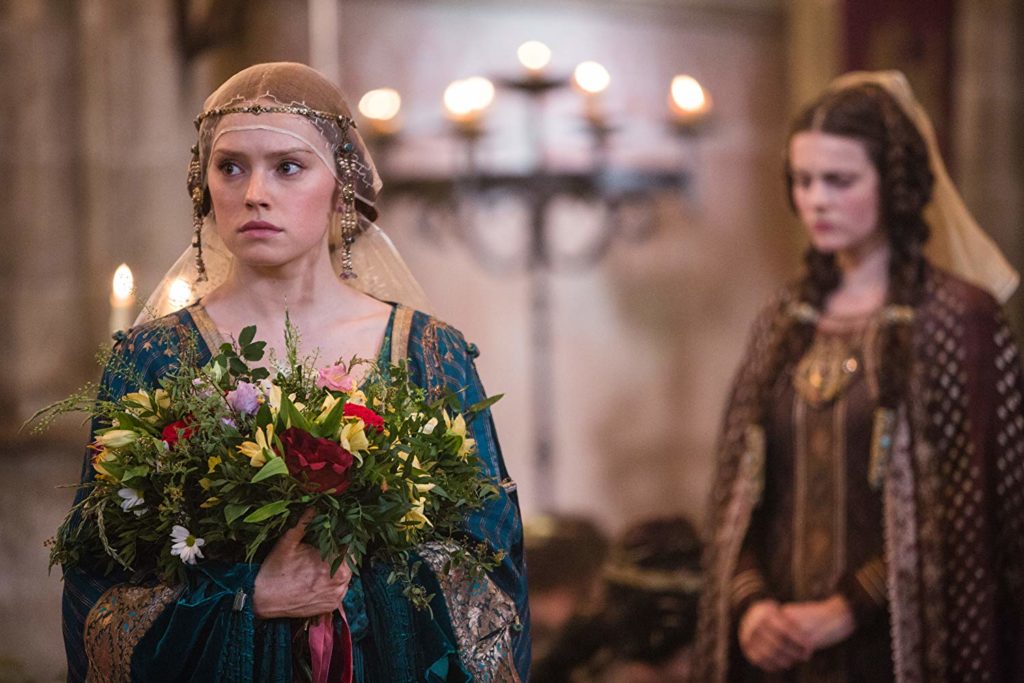
And then there’s casting. Perfection. Daisy Ridley is ideal as Ophelia. She even looks like Ophelia as depicted in John Everett Millais’ famed portrait. And while many will undoubtedly compare Ophelia to her character of Rey in the “Star Wars” franchise, that comparison only serves to enhance the telling of this story. You believe Ophelia’s strength and independence every single minute because we can identify Ridley with traits of Rey. Aiding this idea of independence and strength is Ridley’s own physicality with the same defiant heavy-footed stride we saw in Ophelia as a child. Ophelia may be dressed in finery and outwardly give the appearance of a “lady”, but inside she has never compromised who she is nor what she wants. While young girls will gravitate towards and identify with Ophelia on her own, it may be the memory of Rey that will lead them in. Ridley also brings a lighter softness and romantic note to Ophelia in stolen moments with George MacKay’s Hamlet which is endearing, and at times even humorous, to say the least. This character and performance will resonate with many.

Doing dual duty as Gertrude and Mechtild is Naomi Watts. Watts brings such distinct diversity to each character that it takes a while before you realize this is the same actor playing both roles. A climactic battle sequence reveals yet another character strength from Watts when she picks up a sword with pure hatred and rage. Simply delicious is a wicked Clive Owen as Claudius. It’s not often we get to see Owen as “a bad guy”, but he plays evil so well; but it’s that sexy sort of evil that draws you in and won’t let you go. Tom Felton just keeps surprising us with the variety of roles he has chosen to tackle since rocketing to fame as “Draco Malfoy” in “Harry Potter.” He has built himself an eclectic resume and certainly doesn’t disappoint here by adding a strong performance as Ophelia’s brother Laertes.
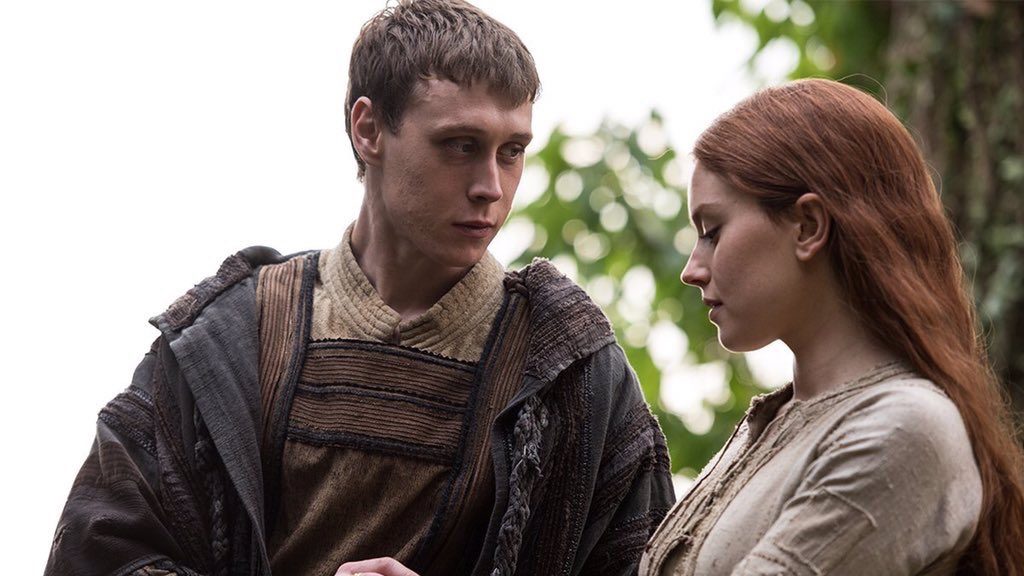
But the performance that stands out the most beyond that of Ridley, comes from George MacKay. He now ranks as one of my all-time favorite Hamlets. He elicits both sympathy and empathy. You see, feel, and engage with Hamlet. You feel the playfulness of puppy love turning to a deep passionate love for Ophelia. It’s believable and embraceable. Bringing that passion to the character is not only necessary for Hamlet but to the telling of this story through Ophelia’s eyes and heart. Interesting note within MacKay’s tone, however, is that we never see or feel madness. What you feel is the broken heart of a boy who lost his father and who may lose the love of his life.
Throw away those CliffsNotes! You won’t need them here. Refreshing and engaging with beauteous award-worthy production values and solid performances led by Daisy Ridley, OPHELIA is a visionary reimagination for our times.
Directed by Claire McCarthy
Written by Semi Chellas adapted from the novel by Lisa Klein
Cast: Daisy Ridley, Naomi Watts, Clive Owen, George MacKay, Tom Felton
by debbie elias, 06/20/2019












